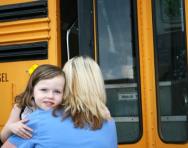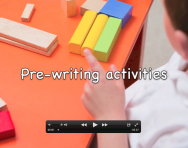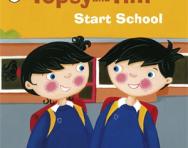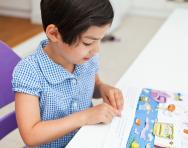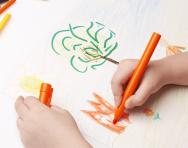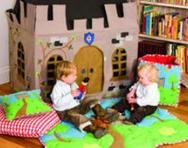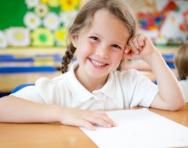Personal, social and emotional development in EYFS
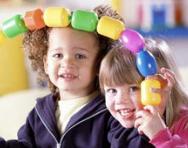
Personal, social and emotional education is important for Early Years Foundation Stage children's development. Find out here how you can support your child's emotional education at home.
In the Early Years Foundation Stage, PSHE is referred to as personal, social and emotional development. This area of your child's learning is concerned with wellbeing – knowing who you are, where you fit in and feeling good about yourself. It is also about developing respect for others, social competence and a positive disposition to learn.
What will your Early Years Foundation Stage child learn?
- Children will learn to form positive relationships in a setting that supports mutual respect and understanding and that celebrates and acknowledges differences.
- With adults as guides and role models, your child will learn to develop anti-discriminatory attitudes.
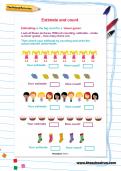
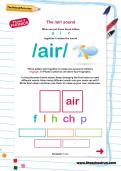
Start the Reception Learning Programme!
- Weekly maths & English worksheets direct to your inbox
- Follows the National Curriculum
- Keeps your child's learning on track
They will be encouraged to gain a knowledge and understanding of their own culture and community to help them develop a sense of belonging and a strong self-image.
- Role play is used to help children explore their own culture and appreciate the similarities and differences in those of others.
- A positive self-image and high self-esteem will be encouraged to give children the confidence to make the most of opportunities, to communicate effectively and to explore the world around them.
- Children learn about different kinds of relationships. Being with the same adults and children regularly gives them the time and opportunity to develop relationships that promote social competence.
- Your child will be encouraged to think about and practise ways of solving problems to help them to feel capable of responding to challenges.
Lesson examples
Here are the kinds of things your child might cover in PSHE classes:
- The children experiment with a range of pipes, guttering and boxes. They talk to the practitioner about what they’ve done and investigate further as a result of that discussion.
- If children are fighting over a toy the practitioner will intervene to stop them and help the children sort out their disagreement. They might agree to each have the toy for a certain amount of time.
How you can help at home
- Encourage your child to play with friends or siblings outside of school hours. Provide plenty of different materials and resources for them to choose from and get them working together to build things, solve problems and create things. Most importantly, promote sharing and turn-taking!
- Make sure you have some sort of role play area in your home. It could be a fancy dress box, a playhouse or a shed. Furnish it with old clothes, hats, shoes, and uniforms and props, such as police or doctor outfits. Role play is a brilliant way to help children learn and empathise with others.
- If you have certain rules in your house, help your child to understand why they are in place. Discuss the rules and ask your child to contribute to them. If your child feels they have made the rules, they'll be less likely to break them!
- Affirm and praise positive behaviour, explaining that it makes children and adults feel happier.
- Encourage your child to dress and undress independently, and manage their own personal hygiene, giving support where needed.
- Help your child to learn to empathise with others by telling them stories about real life situations and asking them to explain how they feel and what they think.
- Always ask your child plenty of questions about their feelings.

Give your child a headstart
- FREE articles & expert information
- FREE resources & activities
- FREE homework help
By proceeding you agree to our terms and conditions. For information on how we use your data, see our privacy policy. You will receive emails from us but can opt out at any time.
